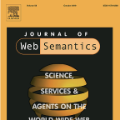Weakly-sticky (WS) Datalog+/- is an expressive member of the family of Datalog+/- programs that is based on the syntactic notions of stickiness and weak-acyclicity. Query answering over the WS programs has been investigated, but there is still much work to do on the design and implementation of practical query answering (QA) algorithms and their optimizations. Here, we study sticky and WS programs from the point of view of the behavior of the chase procedure, extending the stickiness property of the chase to that of generalized stickiness of the chase (gsch-property). With this property we specify the semantic class of GSCh programs, which includes sticky and WS programs, and other syntactic subclasses that we identify. In particular, we introduce joint-weakly-sticky (JWS) programs, that include WS programs. We also propose a bottom-up QA algorithm for a range of subclasses of GSCh. The algorithm runs in polynomial time (in data) for JWS programs. Unlike the WS class, JWS is closed under a general magic-sets rewriting procedure for the optimization of programs with existential rules. We apply the magic-sets rewriting in combination with the proposed QA algorithm for the optimization of QA over JWS programs.
翻译:数据粘性 (WS) 数据粘性 (Datalog+/-) 是基于粘性和周期性弱的合成概念的Datalog+/- 家庭的一个表达成员。 已经调查了对 WS 程序的答复, 但是在设计和实施实用的答答( QA) 算法及其优化方面仍有大量工作要做。 在这里, 我们从追逐程序的行为的角度研究粘性和WS 程序, 将追逐的粘性属性扩展至追逐的普遍粘性( Qsch- operty) 。 有了这个属性, 我们指定了GSCH 程序的语义类, 其中包括粘性和WS 程序, 以及我们确定的其他语义子类。 我们特别引入了联合的粘性答答调( JWS) 算法程序, 包括WS 程序。 我们还为一系列GSCH 的子类提议了自下而起的QA 算法。 JWSAS 程序在混合时间( 数据中) 在 JWSWS 程序中, 与MIS 规则 封闭式程序 。




